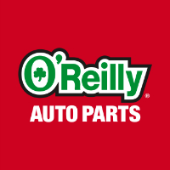-
Welcome to Auto Parts Forum
Whether you are a veteran automotive parts guru or just someone looking for some quick auto parts advice, register today and start a new topic in our forum. Registration is free and you can even sign up with social network platforms such as Facebook, X, and LinkedIn.
Integrating Platform to Realize Autopilot and Networked Vehicle
-
Similar Topics
-
By Counterman
Democrats in Congress are warning that the National Highway Traffic Safety Administration’s (NHTSA) proposed guidance for implementation of Massachusetts’ Data Access Law conflicts with the Biden administration’s pledged support for Right to Repair, the CAR Coalition reported.
As
link hidden, please login to view, former auto repair shop owner and REPAIR and SMART Act co-sponsor Rep. Marie Gluesenkamp Pérez (D-WA) joined Reps. Jake Auchincloss (D-MA) and Jared Golden (D-ME) in link hidden, please login to view to Secretary of Transportation Pete Buttigieg and NHTSA Administrator Sophie Shulman outlining concerns that NHTSA’s latest guidance may unfairly harm independent repairers. Citing differences in remote-data access, the lawmakers’ letter warns that NHTSA’s current guidance creates a “double standard” between automaker repair networks and independent repair businesses that may “entrench manufacturers’ dominance in the repair market in the long run … [and] harm competition.”
Anticompetitive practices, like data-access restrictions and design-patent misuse, put independent repair shops at an unfair disadvantage and leave consumers footing higher repair bills.
“Our constituents understand the importance of supporting small businesses and preserving their right to repair the vehicles they own,” Gluesenkamp Perez, Auchincloss and Golden said in a joint statement. “ … Without competition from independent repair shops, auto manufacturers have no incentive to price repair parts competitively.”
Let your member of Congress know to advance these key pieces of legislation by writing them a letter
link hidden, please login to view. The post
link hidden, please login to view appeared first on link hidden, please login to view.
link hidden, please login to view -
By Counterman
As we brace for the worst this coming season has to offer, it’s time to get ahead of winter maintenance.
Snow tires are one of the more obvious seasonal upgrades, adding a little more stability and traction on slippery roads. Even if your customers don’t need to perform a seasonal tire changeover, they should be checking tread depths, overall tire condition and air pressures regularly.
As ambient temperatures drop, tire pressure drops with it. For every 10 degrees of change, you can expect to “lose” 1 pound of air pressure. TPMS sensors may trigger a warning light if these pressures drop below their preset thresholds, although the light may turn off after a few miles, as heat builds in the tire and the pressure increases. Some manufacturers even recommend increasing winter air pressure by 3 to 5 PSI to compensate for these temperature differences. Proper inflation also ensures that the tire has the optimal amount of contact with the road.
Steering, suspension and brake systems work together to help keep those tires firmly planted on the pavement. Worn shocks, struts and chassis parts can affect steering and handling in slippery conditions, while imbalanced braking can affect stopping distance and straight-line deceleration. Inoperative or defective ABS components also may disable traction control and lane assist, as well as other advanced driving-assistance systems (ADAS).
ADAS relies on information from the forward-facing camera(s) commonly found near the rear-view camera, so recommending a weatherproof winter or monobeam wiper of the correct size can help keep the camera view (and your own) clear and unobstructed.
Your own field of vision can be further expanded with fresh or upgraded head-lamp and fog-lamp bulbs. Brighter or whiter lamps (when properly aimed) will cast a pattern further and wider than old bulbs in a hazy, clouded housing. It also makes you more visible to oncoming drivers. While checking the lighting, be sure to cycle the hazard switch along with your high/low beams and turn signals. In the event that you DO find yourself stranded roadside, visibility becomes an even bigger safety concern!
It may seem strange to be concerned about checking over your A/C system before the mercury drops, but the windshield defroster/defogger function of the HVAC controls rely on the air conditioning to dehumidify the air inside the cabin. To defog your windshield quickly, turn OFF the recirculation feature, turn the fan to it highest setting and turn on the AC. Once it clears, you can turn down the fan, increase the temperature and enjoy a clearer view. Checking or changing your cabin filter now will also ensure optimum airflow through those vents.
Keeping the heat circulating all winter means checking the cooling system now. Flushing the cooling system (including the heater core), or at least checking the level and concentration of the coolant is the first step to a warm vehicle. Once the system is up to temperature, cycle the controls through each setting, checking for proper operation of door actuators and the blower motor to prevent surprises later.
Under the hood, check hoses and thermostat operation, along with any possible leaks from the radiator and water pump. Next, check belt and pulley condition while moving along to the starting and charging system.
Winter is one of the hardest seasons on a battery. Test all batteries for adequate cold-cranking amperage and resting voltage. Remember that many vehicles equipped with start-stop and diesel trucks have TWO batteries, and that even hybrids have a starting battery separate from the giant battery pack that provides power to the electric motor(s). Terminal connections and cables should be clean and secure.
A portable power pack/jump starter or a quality set of jumper cables make an excellent addition to your roadside emergency kit. Your emergency supplies also should include a first aid kit, a blanket or warm coat, flashlight, drinking water and non-perishable food. While you’re packing these supplies in the trunk, take the time to check the condition of your jack, lug wrench and spare tire (or inflator kit). With proper preventative maintenance, you and your customers can limit the potential for breakdowns, but still be well-prepared in the event of an emergency.
The post
link hidden, please login to view appeared first on link hidden, please login to view.
link hidden, please login to view 





Recommended Posts
Join the conversation
You can post now and register later. If you have an account, sign in now to post with your account.
Note: Your post will require moderator approval before it will be visible.